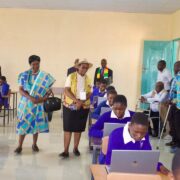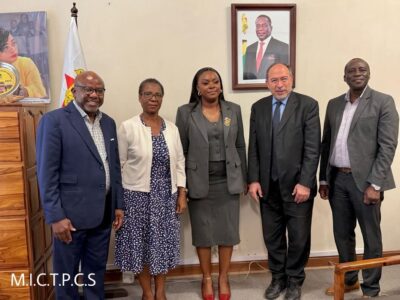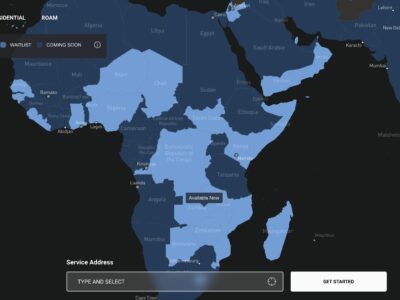The digital divide remains one of the most pressing challenges in Africa, affecting economic growth, education, healthcare, and even cybersecurity.
During the 2025 Cyber Fraud Summit, Prof. Mercy Chitauro of the Namibia University of Science and Technology highlighted how Africa’s lag in digital inclusion exacerbates vulnerabilities to cybercrime.
By Gamuchirai Mapako
While 96% of the global population has access to mobile broadband, rural areas in low-income countries still struggle with connectivity. In Africa, mobile internet costs are 14 times higher than in Europe, and only 4% of the population in low-income nations has access to 5G.
This disparity not only limits opportunities but also increases exposure to cyber fraud. As digital financial services expand, so do cyber threats. Fraudsters exploit weak infrastructure, low digital literacy, and poor regulatory frameworks to target individuals and businesses.
However, success stories like Zimbabwe’s EcoCash, Nigeria’s N-Power Digital Skills program, and community-led networks such as Zenzeleni in South Africa demonstrate that bridging the digital divide can enhance cybersecurity and economic resilience.
These companies are testament to the fact that improving digital access, literacy, and infrastructure can reduce vulnerabilities while fostering inclusive growth.
Africa’s low internet penetration particularly in rural areas forces many to rely on outdated technologies or unsecured networks. Cybercriminals exploit these gaps through phishing scams via SMS or basic feature phones, SIM swap fraud where attackers hijack mobile money accounts and unsecured public Wi-Fi scams in underconnected regions.
Prof. Chitauro’s presentation revealed that Africa remains the least integrated into the digital economy, making it harder to implement robust cybersecurity measures.
Many Africans, Zimbabwe included, lack awareness of cyber threats. The N-Power Digital Skills program in Nigeria addresses this by training youth in digital literacy, coding, and e-commerce. Such initiatives are critical, as educated users are less likely to fall for scams like fake loan apps or fraudulent investment schemes.
Inconsistent policies and lax enforcement allow cybercriminals to operate with impunity, hence the need for stronger cybersecurity laws, affordable internet policies and public-private partnerships to secure digital transactions.
Countries like Kenya and South Africa are trialing TV White Space (TVWS) technology, which provides low-cost broadband using unused TV frequencies. Wider adoption could improve secure connectivity in remote areas.
By integrating fraud detection mechanisms, the likes of EcoCash have reduced scams while expanding financial inclusion. However, challenges like SIM swap fraud persist, highlighting the need for continuous security upgrades.
And Zenzeleni Community Networks (South Africa), a cooperative-owned ISP, empowers rural communities to manage their networks. This model not only improves access but also enhances cybersecurity through localized oversight. Community members are trained to identify threats, reducing risks like identity theft and malware.
On the other side of the continent, Nigeria’s N-Power Program by equipping youth with digital skills, create a generation capable of detecting and preventing fraud. Graduates have launched secure e-commerce ventures, proving that education is a powerful tool against cybercrime.
Mawingu Networks (Kenya) uses solar-powered Wi-Fi to bring affordable internet to remote areas, a remarkable innovation that reduces reliance on risky public hotspots, a common vector for fraud.
As Africa accelerates digital transformation, cybersecurity must be a priority. By improving access, literacy, and policies, the continent can turn the tide against cyber fraud while unlocking economic potential.














Comments